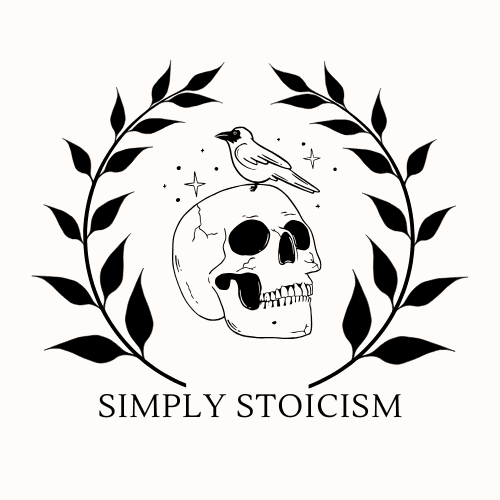6 Career-Saving Lessons from Stoic Philosophers
Discover how ancient Stoic wisdom can transform your work life. Learn practical techniques from history's greatest philosophers to excel in your career and find meaning in your work.

Jon High
·
Dec 7, 2024
Ever notice how most career advice sounds like it was written by a LinkedIn algorithm hopped up on too many "hustle culture" posts? You know what I mean—all that "rise and grind" and "network your way to the top" garbage that makes you want to delete your social media accounts and become a sheep herder in Mongolia.
(If you're new to Stoicism, start with our What is Stoicism? A No-Nonsense Guide to Ancient Wisdom first.)
Here's the thing: The ancient Stoics actually figured out some pretty profound truths about work, success, and career satisfaction—and they did it without ever having to post a single "day in the life" TikTok video.
These philosophers—who ranged from slaves to emperors—understood something that most modern career gurus miss entirely: Your work life isn't separate from your inner life. They're the same thing.
Let's dig into six career-changing lessons from people who knew a thing or two about handling pressure, managing success, and dealing with workplace drama (turns out, office politics in ancient Rome were even worse than your Tuesday morning Zoom meetings).
1. Your Job Title Isn't Your Identity
Marcus Aurelius, who had possibly the most impressive job title in history—Emperor of Rome—wrote his reminders about staying humble while literally running the known world. As we explore in The Ancient Stoic Virtues: A Modern Guide to Living Well in a Chaotic World, he understood that external success and internal worth are two very different things.
Here's what this means for your career:
Your position can change
Your worth cannot
Your title is temporary
Your character is permanent
Modern Application: Instead of obsessing over promotions or job titles, focus on:
The quality of your work
The integrity of your decisions
The impact you have on others
The skills you're developing
2. Control What You Can, Let Go of What You Can't
Epictetus, who started his life as a slave and ended it as one of history's greatest teachers, had a simple framework for handling any situation: Focus only on what's in your control.
In your career, you can control:
Your effort
Your preparation
Your responses
Your attitude
Your continuous learning
You can't control:
Market conditions
Other people's decisions
Office politics
Economic cycles
Your boss's mood
This isn't just philosophical theory—it's practical career strategy. When you stop wasting energy on things you can't influence, you become remarkably more effective at the things you can.
3. Every Career Setback is a Training Opportunity
Remember in Your Problems Aren't Special when we talked about how the Stoics viewed obstacles? They saw every problem as an opportunity to practice virtue and build character.
Got passed over for a promotion? Great—here's a chance to practice resilience. Difficult colleague making your life hell? Perfect—time to work on patience and understanding. Project failed spectacularly? Excellent—now you can practice bouncing back.
The Stoics would say these aren't just nice reframes—they're the actual purpose of career challenges. Every setback is a setup for growth if you approach it with the right mindset.
4. Your Real Performance Review Happens in the Mirror
Seneca, who was both a successful statesman and philosopher, wrote that the opinion that matters most is the one you have of yourself. This isn't some feel-good affirmation—it's a serious standard to hold yourself to.
Questions for your self-review:
Did I do my best work today?
Did I maintain my principles?
Did I help others succeed?
Did I learn from my mistakes?
Did I add real value?
Notice how none of these questions depend on anyone else's validation? That's not an accident.
5. Office Politics Are Nothing New
Think your workplace has drama? Seneca had to deal with Nero—you know, the emperor who eventually ordered him to commit suicide. Yet even in that extreme situation, he maintained his principles and continued to do meaningful work.
The Stoic approach to workplace politics:
Focus on principles over popularity
Build genuine relationships, not strategic alliances
Maintain your integrity, especially when it's difficult
Help others without expecting anything in return
Stay above the drama without being arrogant about it
As we discuss in 40 Stoic Exercises for Daily Life, these aren't just nice ideas—they're practical exercises you can use every day.
6. Your Career Will End—Plan Accordingly
Here's something you won't hear at a motivational seminar: Everything ends. Your career, your job, your success—it's all temporary. The Stoics would say this isn't depressing; it's liberating.
When you remember that your career is temporary, you:
Make better decisions
Focus on what truly matters
Build skills that last
Develop interests outside work
Maintain perspective during crises
This isn't about being negative—it's about being realistic and prepared. As we explore in Memento Mori: The Reminder We All Need, remembering our mortality helps us live more fully.
Putting It All Together: Your Stoic Career Strategy
Here's your practical action plan for applying these lessons:
Morning Review
What's actually in my control today?
Where can I add the most value?
What principles might be tested?
Evening Review
Did I maintain my standards?
What did I learn?
How did I help others?
Weekly Practice
Review your motivations
Check your attachments to outcomes
Plan for potential challenges
Monthly Reflection
Assess your growth
Review your principles
Adjust your course as needed
Remember: The goal isn't to become some emotionless robot at work. The goal is to become someone who:
Does excellent work without being defined by it
Helps others without keeping score
Maintains principles under pressure
Grows through challenges instead of just enduring them
The Ultimate Career Hack
Here's the real secret the Stoics understood: The best career strategy isn't about climbing the ladder faster than everyone else. It's about becoming the kind of person who deserves to succeed.
Want to really level up your career? Start with our guide to 40 Stoic Exercises for Daily Life and begin building the mental resilience and ethical framework that will serve you no matter what your career throws at you.
Because at the end of the day, your career isn't about what you achieve—it's about who you become in the process of achieving it. And that's something no performance review can measure.



